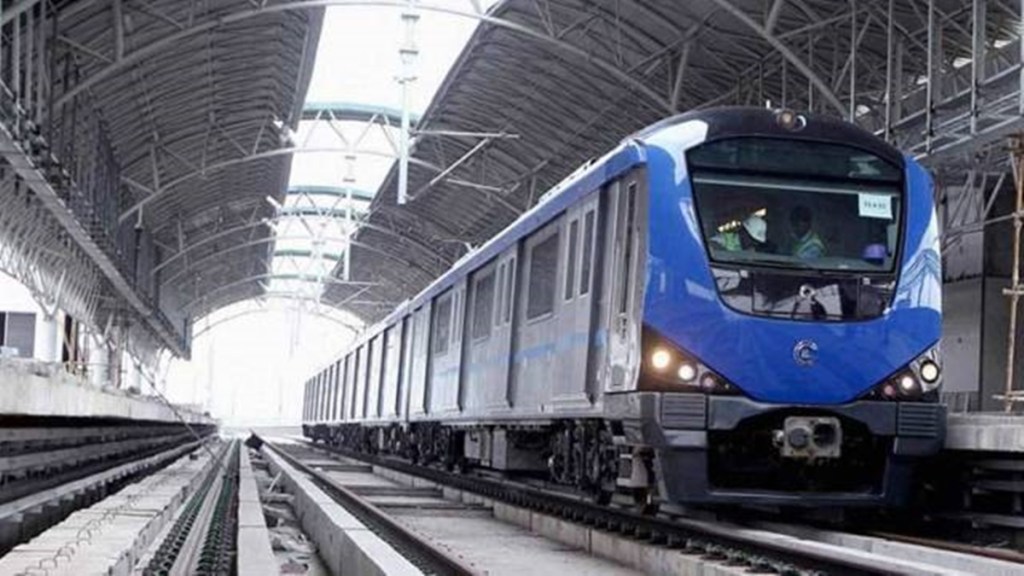Chennai Metro Rail (CMRL) on Saturday said allegations that undue advantage was provided to France-based Alstom Transport during the procurement of rolling stock way back in 2010 for Phase I project are totally false and factually incorrect. Fair process was followed, which resulted in CMRL saving hundreds of crores to the public exchequer, the company said in a clarification statement.
It was alleged that undue advantage was provided to Alstom Transport by an addendum issued on the applicability of customs duty on the trains procured, after the financial bid. There was also allegation that the selected bidder, Alstom, had faced penal action in various countries for bribing to obtain government projects, including CMRL, through shell companies. BJP Tamil Nadu president Annamalai has made the allegations pointing fingers at the DMK and Congress governments that were in power in 2010 in Tamil Nadu and the Centre, respectively.
Also read: SMEs require greener solutions to achieve the country’s sustainable development goals
“It is incorrect and both the addendums were issued a minimum of ten days before the last date of submission of tender. This made the bid fair, by placing all bidders on an equal pedestal and incentivised the bidders to manufacture locally,” CMRL said.
The addendum for conferring the deemed exports benefits resulted in reduced cost for CMRL. At the time of invitation of bids for trains for CMRL, cost of one stainless steel car was about Rs 10 crore. Bangalore Metro had also awarded their bid at about Rs 10 crore per car at that point in time. Due to the ‘deemed exports’ benefits notification by the GoI, CMRL was able to procure the rolling stock at about Rs 8.57 crore per car. This has resulted in a savings of about Rs 250 crore to CMRL, the statement said.
In addition, the local manufacturing facilities for rolling stock had increased to three due to the new facility established by Alstom. This resulted in greater competition and the rolling stock were manufactured fully in India at a lesser price, than compared to earlier period of CMRL procurement. Hence, it would be clear that the granting of ‘deemed exports’ benefits has resulted in huge savings in rolling stock cost to all the metro rail companies/corporations, it said.
“It is again reiterated that the procurements undertaken by CMRL have been based on fair and robust procurement practices. All the allegations raised in this regard, undue favours, indictment in overseas cases and link with shell companies are wrong and misplaced and hence are denied in toto,” it said.
After the invitation of bids, the Central government had issued a notification regarding ‘deemed export’ benefits for projects funded by JICA. As per notification, projects funded by JICA were made eligible for ‘deemed exports’ benefits, meaning even if the manufacturing of products is done in India, the union excise duty exemption would be available to them, deeming them as if the products are exported to foreign countries. It is pertinent to note that this was not a specific policy change for this project and product but was a generic direction aimed to incentivise the local manufacturing in India for products being procured for projects funded under important international funding agencies, CMRL said.
Also read: Commercial calls may soon get different number series
It is well known that local manufacturing of any product in India will reduce the prices and save funds for the public procurement entity. But since the tenders had already been floated by CMRL before this notification was issued by GoI, the tender conditions needed to be amended to confer this benefit to the project and bring down the costs. Accordingly, addendum was issued informing all the pre-qualified bidders of the availability of ‘deemed exports’ benefits to the JICA projects, it said.
Four bidders Alstom Transport SA, France and Alstom Projects India Ltd, Bombardier Transportation Gmbh, Germany & Bombardier Transportation India, CAF Spain- Mistubishi Consortium and BEML-Hyundai Rotem Consortium were pre-qualified for rolling stocks based on given pre-qualification criteria such as previous experience, financial capabilities, and manufacturing capabilities.
Alstom was the L1 bidder as per the bid process and not the CAF Spain- Mistubishi Consortium as has been wrongly alleged. The bid was awarded on August 2, 2010 and every stage of the tender process from the bid documents, addendums and final selection, was scrutinised and approved by JICA, in addition to the board of CMRL, headed by the secretary urban development, government of India. Accordingly, the rolling stock order was awarded to Alstom, France. Alstom supplied the first 9 trains (36 cars) from their factory at Sao Paulo, Brazil and they established a new local manufacturing factory at Sri City in Andhra Pradesh and had supplied the remaining trains from the facility, it added.
On the allegation that Alstom, had faced penal action in various countries for bribing to obtain government projects, CMRL said while it is true that the bidder had faced penal actions towards such inappropriate behaviour, linking them to the procurement in CMRL is utterly false and malicious.


